
You are reading:

You are reading:
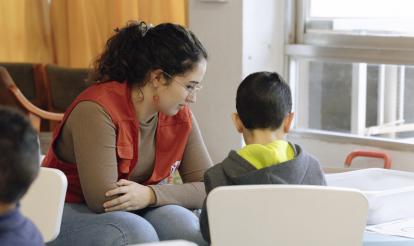
17.10.25
11 minutes readSpain continues to have one of the highest levels of poverty and social exclusion in the European Union. The rising cost of living, difficulties in accessing housing and educational and employment inequalities all exacerbate a situation that affects the future of thousands of people. We visited some of the most vulnerable neighbourhoods in Valencia to witness first-hand the commitment and progress of families supported by the ”la Caixa” Foundation and the organisations it works with in the fight against poverty and social exclusion.
According to the latest State of Poverty report, produced by the European Anti-Poverty Network (EAPN), at least one in four Spaniards has remained at risk of poverty or social exclusion over the past decade. Particularly alarming is the child poverty rate, the highest in the European Union, with 2.3 million children and adolescents affected.
In response to this reality, the ”la Caixa” Foundation joins the International Day for the Eradication of Poverty with a firm commitment to continue offering opportunities to the most vulnerable groups at every stage of life. Through its programmes and with a budget of 655 million euros in 2025, the Foundation promotes social and educational initiatives aimed at building a fairer and more inclusive society.
CaixaProinfancia: breaking the cycle of inherited poverty
One of the pillars of this strategy is CaixaProinfancia, a programme that since its launch in 2007 has supported nearly 400,000 children and adolescents living in vulnerable situations. Active throughout Spain and in Portugal, the programme provides educational support, leisure activities, psychological care and family guidance with the aim of breaking the cycle of inherited poverty.
Maribel López, programme management officer at the Save The Children Foundation and also coordinator of one of the CaixaProinfancia networks in the city of Valencia, highlights the progress achieved through the programme: “The changes we see range from educational success – children who start school with major difficulties and who, thanks to the support of educators, are able to move up a year and improve their performance – to increased self-esteem and better relationships with their peers.”
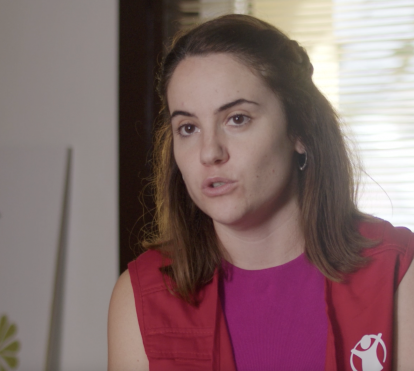
According to López, the key when working with children in vulnerable situations is “to treat them as what they are, rights-holders, and to support them with dignity and respect.”
Progress is also clear within the family sphere. “Through family education workshops and psychological support provided by CaixaProinfancia, families greatly improve their communication, build healthier relationships and connect with other families in the area. Creating networks for these families is absolutely essential.”
Child poverty, an invisible reality
For the Save The Children specialist, child poverty is “an invisible reality” reflected “in everyday acts that often go unnoticed,” such as a family being unable to buy prescription glasses for their child or turn on the heating in winter. “As a society, we must acknowledge that this reality exists, do everything in our power and demand public policies that guarantee equal opportunities for everyone,” she emphasises.
Blanca Adela Flores Menéndez is 32 years old and the mother of three children, one of whom has a disability. Unemployed and without stable housing, she admits: “I really want to move forward for the sake of my children, but sometimes I can’t, I just don’t manage it.”
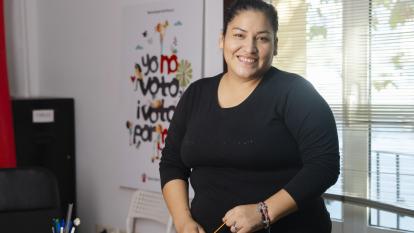
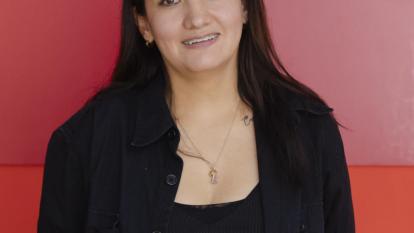
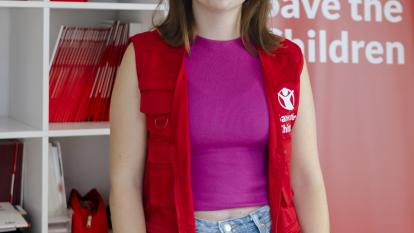
When she arrived in Valencia from Peru, she went through very tough times. “I was on my own. I tried to give my little ones the best, but I couldn’t manage everything.” Her life changed when she came into contact with Save The Children and the CaixaProinfancia programme. “They helped us a lot, psychologically and emotionally. They restored our confidence and sense of security. Now my children are doing wonderfully,” she says gratefully.
Finding Save The Children and CaixaProinfancia was also a turning point for Pamela Sandi Hiza and her 12-year-old son. The mother, who emigrated from Bolivia when her boy was four, turned to the organisation in Valencia because she was struggling to balance her working hours with the academic support her son needed.
“They give him constant support with his studies and help him make friends and feel part of society,” says Pamela. Leisure activities – such as camps and summer programmes – are his favourites. “He feels safe and supported, and they allow me to keep working to support the family. With the rising cost of living, especially housing, it’s becoming increasingly difficult to make ends meet.”
“We’re very grateful to the organisation,” she adds. “I hope my son can make the most of this opportunity and have a bright future ahead of him.”
López highlights the value of the programme: “CaixaProinfancia is effective because it works in the long term, which greatly increases the chances of educational and family success. It doesn’t focus solely on the child, but also works with the family, the community, social services and other local resources.”
A key support to help children be children
In the Valencian neighbourhood of Nazaret, Esteban Burillo, coordinator of the social programmes of the El Arca Association, explains what it means to him to support a child living in poverty. “First and foremost, it requires remembering that they’re not a social category; they’re not defined by their ethnicity or their background. They’re children, and therefore we must treat them with the same openness with which they look at others.”
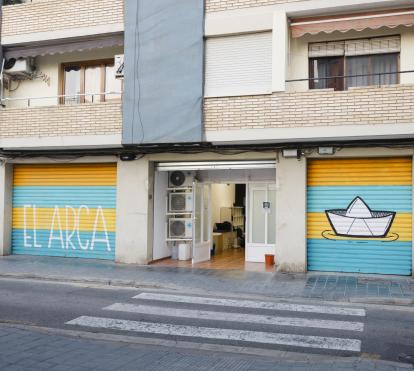
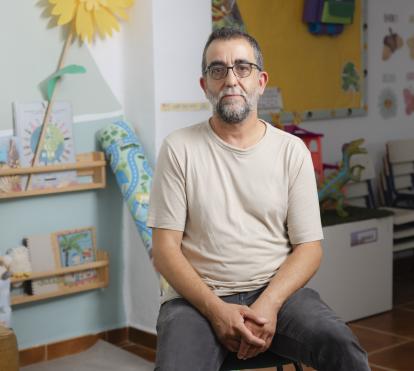
Then, he explains, you have to create safe spaces where the little ones know what is going to happen, “so that they can relax, allow themselves the luxury of being who they are and play, because for them, living means playing.” In truth, according to the coordinator, there is no mystery to it: “What we do at CaixaProinfancia is simply let children be children.”
Over time, he says, the association has moved “from the verb to do to the verb to support; from transforming to enabling.” Their role, he insists, “is to accompany children in spaces where they feel comfortable. From there, the magic happens on its own.”
According to Burillo, the families they work with currently face two main challenges. “One is housing, which is fundamental for children, because without it there’s no stability, and without certainty there’s no childhood.” The other, he warns, is that society is becoming accustomed to narratives of contempt and exclusion: “And our families are victims of those hate-fuelled narratives. If there’s no contempt, if someone welcomes you and supports you, poverty doesn’t hit as hard, things aren’t as tough. What’s more, when you feel despised, you can end up despising yourself for being in that situation. And when that happens, which it often does, people tend to make themselves invisible, to hide away, and that makes it harder to help them.”
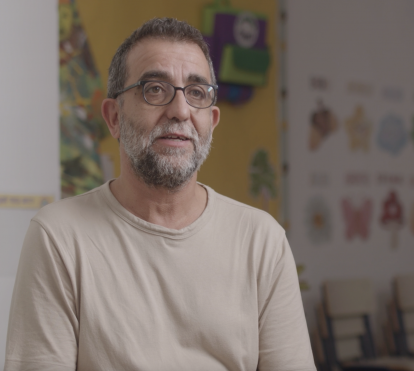
Paterna, a town marked by stigma and inequality
Poverty has many faces, and a lack of financial resources is only one of them. In towns like Paterna (Valencia), where social stigma has become entrenched, there is a highly vulnerable population facing barriers to employment, housing problems, educational segregation and limited access to basic services.
María José Jiménez, local coordinator of the Secretariado Gitano Foundation, sums it up bluntly: “In a democratic and developed society like ours, it makes no sense that more than 12 million people are living in poverty. Among the Roma population, moreover, two out of every three young people don’t have a secondary school qualification. There’s a high rate of school dropout and academic failure, which only widens the gap.”
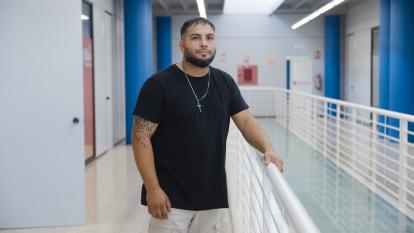
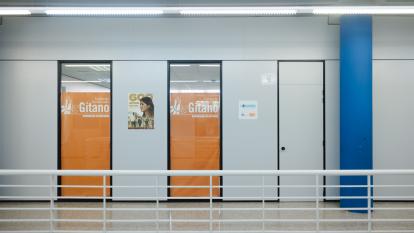

The organisation works holistically and in a personalised way across all areas of people’s lives that are affected by discrimination (training and employment, education, social inclusion and so on). “Thanks to that support,” Jiménez explains, “people gain confidence, improve their mental health and reduce their loneliness and isolation.”
Jonathan Segura lives in the La Coma neighbourhood, is the father of three children, and a beneficiary of the CaixaProinfancia and Incorpora programmes. He is currently finishing his studies and looking for a stable job to cover the rent and keep the fridge stocked. “With prices the way they are, I’m just about scraping by.”
The most important thing he received from the organisation, he says, was trust. “They’re people who believe in you,” he shares. He is grateful for all the support he has received: “They’re like family to me. Thanks to them, I am who I am. They’ve been an incredible source of strength. They train you, teach you how to look for work, and guide you in parenting. And for the children, they provide extra academic support, motivate them to study and work so they can become whatever they want to be in the future.”
One of his daughters wants to be a midwife, another a dentist, and the third a police officer. “As a father, I’d love for them to be able to achieve that dream.”
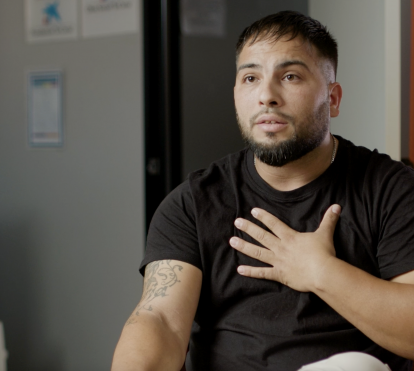
“After eight years without work, I’m starting to believe in myself again”
In adulthood, entering the workforce is often the first step towards escaping poverty. Maribel Caballer, technical coordinator of the Incorpora employment integration programme at the Pactem Nord Employment Creation Consortium, sees it every day: “Sometimes, when you interview people, you can tell that their main worry is how they’re going to get through the rest of the day with the money they have. When your income is below 60% of the median annual income, there’s an inevitable link between poverty and social and labour exclusion.”
The Incorpora programme run by the ”la Caixa” Foundation facilitates access to the labour market for people at risk of social exclusion in Spain and Portugal, with nearly 450,000 job placements since its inception.
As part of the Incorpora network, Pactem Nord develops personalised pathways for social and employment integration. “We start by making an assessment together with the individual, and from there we set goals,” explains Caballer.
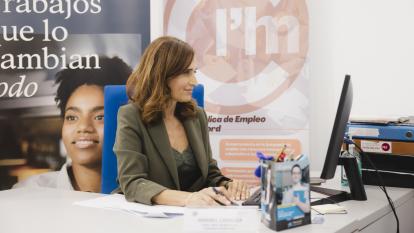
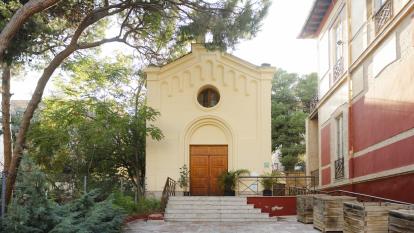

The aim is to help people feel active and have a clear path towards improvement: they attend interviews, take part in training and apply for jobs. “This gradually builds their self-confidence, boosts their self-esteem and helps them face employment more effectively,” says the professional.
Juan José Garrido, a resident of Foios in the Valencian region of L’Horta Nord, knows just how hard it can be to find a job. With no formal education and no trade to his name, he had been unemployed for nearly a decade by the age of 51. Many companies, he says, “preferred younger people”.
“At Pactem Nord, they opened their doors to me and offered support through various initiatives. One of them was a kitchen assistant course that I decided to sign up for,” he recalls. “Alongside the training, they helped me with my CV and interview preparation. Then they follow up with you, and if you’re unemployed, they send you job offers.”
Thanks to the programme, he secured two temporary jobs and now looks to the future with optimism. “I feel better now,” he says. “Seeing that Pactem Nord believed in me boosted my self-esteem. Now I know I’ll find something else,” he says with confidence. “What I want is to find a stable job and be somebody.”
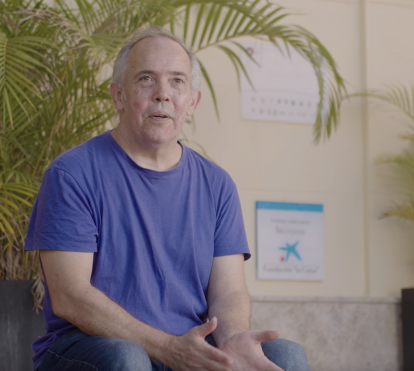
A broad and transformative social initiative
In addition to CaixaProinfancia and Incorpora, the ”la Caixa” Foundation is expanding its commitment to social transformation through other programmes, such as the Bachelor Fellowships Programme, which promotes university access for young people with limited resources. It also fosters educational innovation through initiatives like EduCaixa and ProFuturo, the latter having a global impact in more than 30 countries.
Through its Calls for Social Projects and the calls co-funded with the European Social Fund, it also supports local initiatives that promote equal opportunities and social inclusion, tailored to the specific realities of each autonomous community and rural area.
At the international level, it tackles poverty and inequality in Africa, Asia and Latin America through its International Cooperation programme, which has already benefited around 750,000 people.
In a context where poverty is perpetuated by unequal opportunities, investing in childhood, education and employment remains the most effective path towards building a fairer society. Through its 2025–2030 Strategic Plan for social transformation, endowed with over four billion euros, the Foundation is reinforcing this commitment by placing the fight against poverty and inequality at the heart of its work. For more than a century, it has upheld its mission: to offer more opportunities to those who need them most.